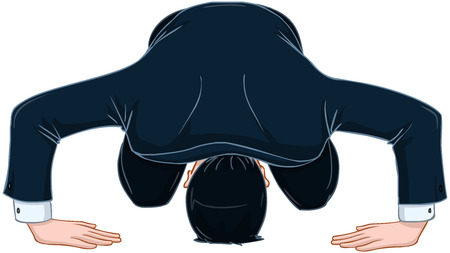
When was the last time you made a mistake?
Intellectually, we know, we all make mistakes. Emotionally, it can be painful, especially at work, when promotions, bonuses, and reputations are on the line. Mistakes do not have to derail you though. When handled correctly, they can actually help you.
There are two strategic errors people make when dealing with mistakes; here’s a description and how to avoid them:
What to do instead: Be proactive. Conversations are much smoother when you own up first, before your boss or someone on your team has to call you out.
Tattling on yourself for little things like being five minutes late or jamming the printer, is not a good use of time, nor does it make you look good. But if you or your team makes a mistake that has measurable impact on the organization, you need to let your boss know. Accurately describe the situation and accept full responsibility for whatever part was within your control. Do not at any point try to deflect or cast the blame on others. Simply explain the mistake without blame or shame. Do not belabor your remorse.
2. The Over Apology – If I apologize profusely the boss will know how bad I feel. The worse I feel, the more easily solved. Wrong again. More remorse does not equal faster resolution. Big mistakes or a situation where someone is truly hurt do require a sincere apology. But multiple sorry’s actually puts the other person on the defensive, or makes them feel sorry for you.
Imagine you’re meeting a colleague for coffee. You don’t allow enough time for traffic, you’re 15 minutes late. You rush in saying, “I’m so sorry. The traffic was terrible. I’m sorry to keep you waiting. I apologize. Again, I am so so sorry.”
Where’s the focus? It’s on you; you’re asking the other person to forgive you.
Now reframe it. Instead of “I’m sorry,” very sincerely say, “Thank you so much for waiting. I was delayed in traffic.” Where’s the focus now? It’s on the other person, and the gratitude you feel for them. Instead of begging for pity, you’re showing appreciation. It evokes a better response and it’s a more powerful position. You can then frame the conversation positively going forward.
Critical point: Increasing your remorse does increase resolution. The best way to resolution is with your actions.
Instead of throwing yourself on your sword, remind the other person of your intent. Then provide a clear action plan. In the coffee scenario, you can say, “Coffee is on me. I’ve been looking forward to meeting with you. Let’s order your favorite thing on the menu and get started.”
Small mistakes, like one time tardiness, are easily solved. Larger mistakes require a more thorough plan, and some mistakes have no resolution.
If you’ve made a major error at work, think through what it will take to resolve it before talking to your boss. Then let them know what you’re doing, or what you need help with in order to move on from this.
Mistakes don’t have to derail you. Name it, claim it and fix it.